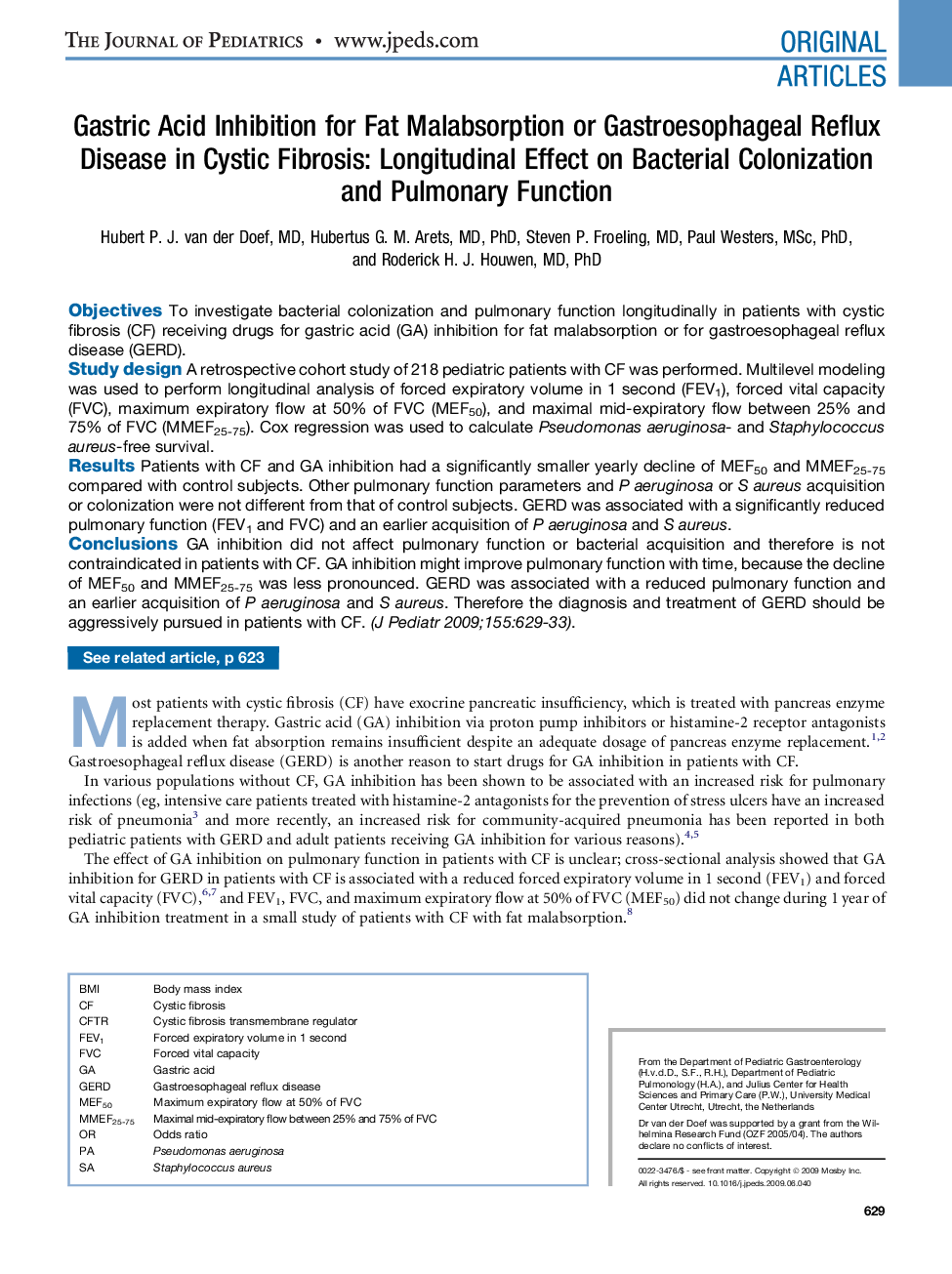| Article ID | Journal | Published Year | Pages | File Type |
|---|---|---|---|---|
| 4167400 | The Journal of Pediatrics | 2009 | 5 Pages |
ObjectivesTo investigate bacterial colonization and pulmonary function longitudinally in patients with cystic fibrosis (CF) receiving drugs for gastric acid (GA) inhibition for fat malabsorption or for gastroesophageal reflux disease (GERD).Study designA retrospective cohort study of 218 pediatric patients with CF was performed. Multilevel modeling was used to perform longitudinal analysis of forced expiratory volume in 1 second (FEV1), forced vital capacity (FVC), maximum expiratory flow at 50% of FVC (MEF50), and maximal mid-expiratory flow between 25% and 75% of FVC (MMEF25-75). Cox regression was used to calculate Pseudomonas aeruginosa- and Staphylococcus aureus-free survival.ResultsPatients with CF and GA inhibition had a significantly smaller yearly decline of MEF50 and MMEF25-75 compared with control subjects. Other pulmonary function parameters and P aeruginosa or S aureus acquisition or colonization were not different from that of control subjects. GERD was associated with a significantly reduced pulmonary function (FEV1 and FVC) and an earlier acquisition of P aeruginosa and S aureus.ConclusionsGA inhibition did not affect pulmonary function or bacterial acquisition and therefore is not contraindicated in patients with CF. GA inhibition might improve pulmonary function with time, because the decline of MEF50 and MMEF25-75 was less pronounced. GERD was associated with a reduced pulmonary function and an earlier acquisition of P aeruginosa and S aureus. Therefore the diagnosis and treatment of GERD should be aggressively pursued in patients with CF.
